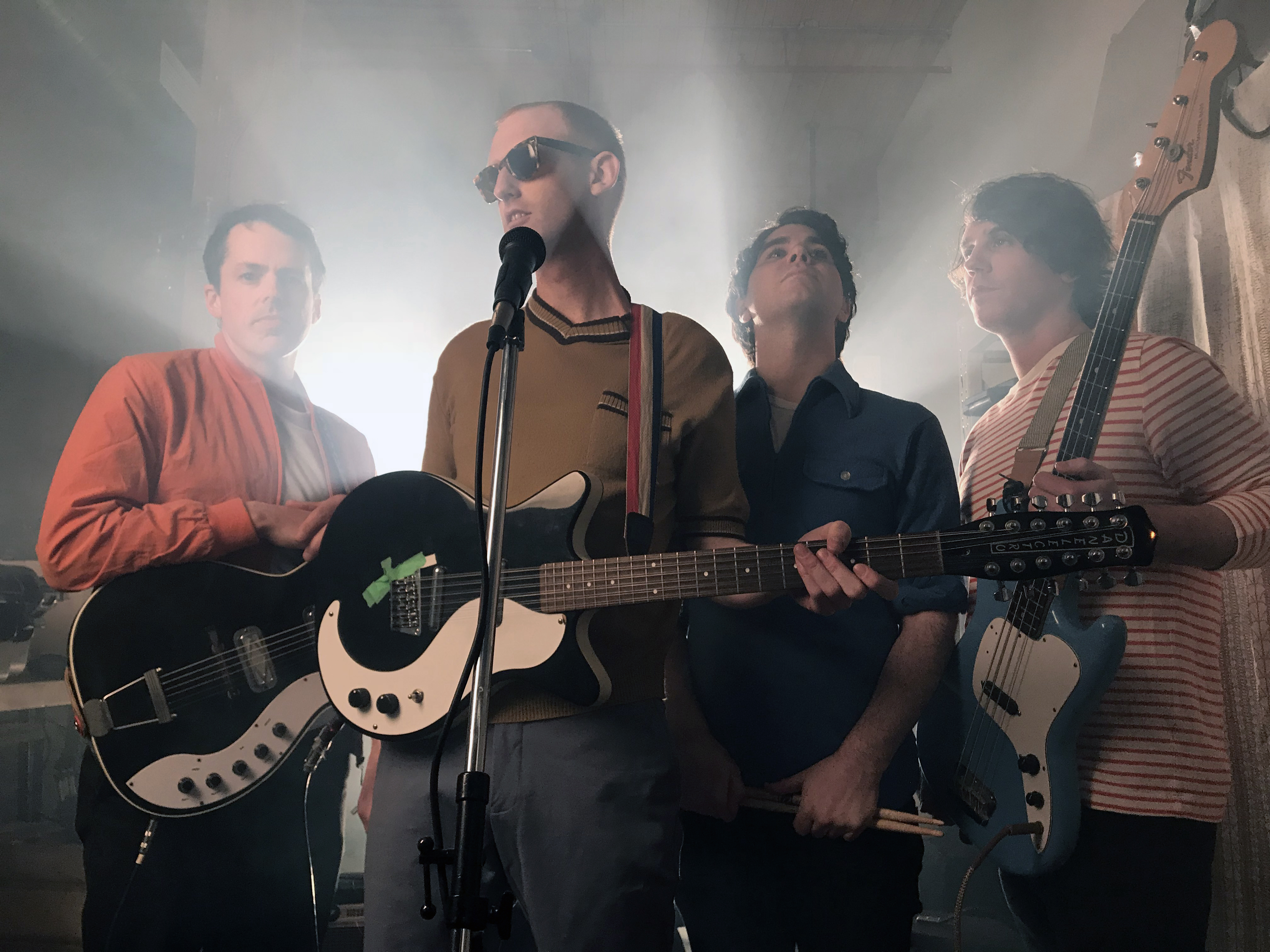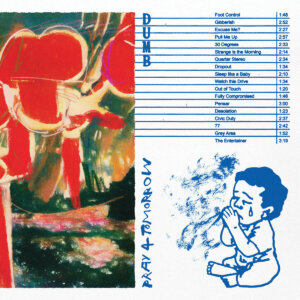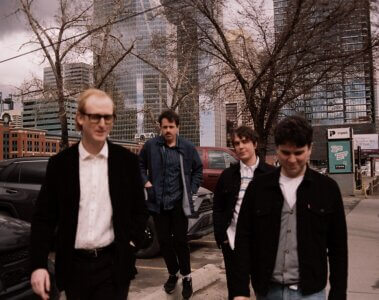Kiwi Jr.’s Tales Of The City

Mint Records‘ latest signees, Kiwi Jr., make their full-length debut with Football Money on March 29. It’s a reeling blast of power-pop that tells non-sentimental stories of parties gone awry, growing into one’s mid-20s, and a city undergoing drastic change.
Although Football Money is Kiwi Jr.’s first album, the band formed four years ago, singer-guitarist Jeremy Gaudet estimates in a phone conversation with Northern Transmissions. Many of the album’s10 songs were written when Gaudet and the rest of the members – bassist Mike Walker, guitarist Brian Murphy, and drummer Brohan Moore – moved from their home of Charlottetown to Toronto between five and 10 years ago. “That’s why I’m stressing that it’s a Toronto record and a Toronto band, because even though we’ve known each other for a very long time, I don’t think we would have made the same record if we had made it back home. And the band formed here. The distinction’s important for me.”
Football Money was built upon the members’ fresh impressions of Toronto, impressions culled from early jobs and getting to know the city. Ironically, the band benefited from renting a rehearsal space an hour and a half from their homes in the east end. “There’s that joke that’s like, Toronto is at least an hour from Toronto. It’s so hard to get anywhere…. You kind of absorb a lot of that stuff through transit and day-to-day bullshit you have to do.”
Kiwi Jr.’s songs are narrative-driven, inspired by real-life events and situations. Even on a song like the pulp murder mystery “Leslie,” which is pretty much a work of fiction largely inspired by true crime podcasts, the line between fiction and plausible reality blurs: “Who dropped out of college? Leslie. Took to the streets for knowledge? Leslie.” Gaudet laughs, acknowledging that there’s a grain of truth in those lyrics, as far as musician stereotypes go.
On “Salary Man,” a hard-working office drone looks back on his unwillingness to accept help, like he has his life – and the world – all figured out. He clings to his youth, partying until he vomits into a sink or passes out on a public bench in his new suit, shiny blue tie, and polished black boots. “That song is kind of the experience of just ruining yourself under fluorescent lights, staring into Excel, doing Microsoft products your whole 8, 9 hours a day.” Asked if such hard-partying office drones are people the band members observe in the city or work with at their day jobs, Gaudet laughs again. “No, I think that’s us,” he says before explaining that he and Moore are office 9-5-ers.
As for art imitating life, no song on Football Money is truer to the band members’ lives than “Nothing Changes,” specifically concerning the neighbourhoods in which they live. “Everything is out of my price range,” Gaudet sings as he watches his next-door neighbours, who live in similar buildings, pay $800-900 more. “Everything is changing like crazy, rent and neighbourhood wise. They’re tearing down so many old Portuguese hardware stores and stuff, and I’m totally part of the problem. So a song like that is trying to wrestle with yourself. I can get mad and write some political pop song about gentrification, but I moved here five years ago into an apartment in a working class ethnic neighbourhood. Who am I going point the finger at, right?”
interview by Leslie Chu
Latest Reviews
Tracks
Advertisement
Looking for something new to listen to?
Sign up to our all-new newsletter for top-notch reviews, news, videos and playlists.









